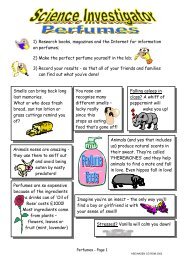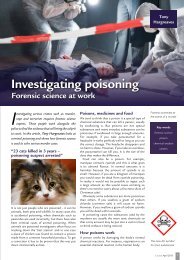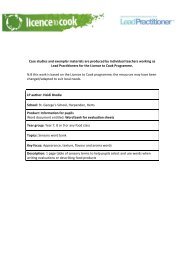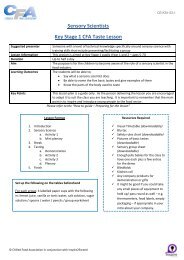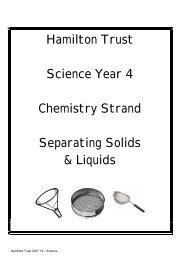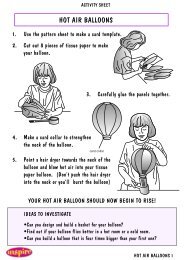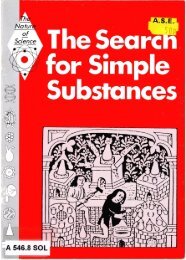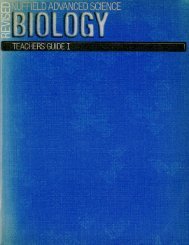Louis Pasteur by Nicola Kingsley - National STEM Centre
Louis Pasteur by Nicola Kingsley - National STEM Centre
Louis Pasteur by Nicola Kingsley - National STEM Centre
Create successful ePaper yourself
Turn your PDF publications into a flip-book with our unique Google optimized e-Paper software.
The microscope<br />
used <strong>by</strong> <strong>Pasteur</strong><br />
at Whitbreads<br />
when he was<br />
called to England<br />
to investigate<br />
. some brewing<br />
problems<br />
22<br />
the wine, after fermentation was completed, to kill off the<br />
second lot of microbes. Now the wine would be able to<br />
mature without going bad. This treatment <strong>by</strong> gentle<br />
heating became known as "pasteurization", and is the<br />
same process used to make sure the milk we drink is free<br />
from harmful microbes.<br />
At first the wine growers were horrified. They were sure it<br />
would ruin the flavour of the wine. <strong>Pasteur</strong> was able to<br />
show them that it did not, but it took a long time to<br />
convince everyone. He kept a cellar full of pasteurized and<br />
unpasteurized wines, and at regular intervals official<br />
parties of wine tasters would sample them and publish<br />
reports saying that the treated wine was better. He even<br />
publicized his method <strong>by</strong> getting the French navy to take<br />
pasteurized wine on long voyages, to show how well it<br />
travelled. Having worked hard to develop a good idea, he<br />
made sure that everyone was convinced <strong>by</strong> it. He also<br />
worked out how to apply it on a large scale, making sure it<br />
did not cost too much, and how to preserve other drinks<br />
and foods <strong>by</strong> the 'same method. As a result of this work, he<br />
was then asked to help the 'beer brewing industry to<br />
improve its production methods.<br />
<strong>Pasteur</strong> could have made a lot of money from his<br />
discoveries, but he refused to profit from them in this way.<br />
He took no interest in money in case it might distract him<br />
from science. His salary was paid directly to his wife, and<br />
he left the financial side of running his laboratory to others.






